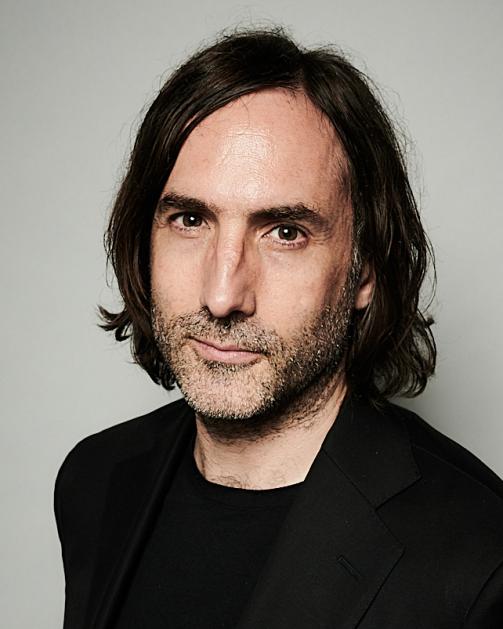Explore More
Why did Prophet Song by Irish Author Paul Lynch Win the Booker Prize 2023

If there was ever a crucial book for our current times, it’s Paul Lynch’s Prophet Song…a literary manifesto for empathy for those in need and a brilliant, haunting novel that should be placed into the hands of policymakers everywhere.
— Observer
If you look at the List of winners and nominated authors of the Booker Prize you can’t even imagine being an author awaiting the results sinking in that cocktail of nerves, anxiety and hope. How many authors found themselves caught in between creation and validation? But for Irish author Paul Lynch was very different. Yes, he did win the Booker Prize for writing the winning novel, Prophet Song but he felt compelled by the necessity of writing from within, he found himself unable to resist the urge to write. This book extends beyond the confines of the literary realm, nearly imploding with the weight of reality, urging us to reflect instead of turning our gaze away, making us think instead of looking away.
Esi Edugyan, Chair of the judges, expressed the committee’s sentiments, stating, ‘From that first knock at the door, Prophet Song forces us out of our complacency as we follow the terrifying plight of a woman seeking to protect her family in an Ireland descending into totalitarianism. We felt unsettled from the start, submerged in – and haunted by – the sustained claustrophobia of Lynch’s powerfully constructed world.’
Edugyan continued, ‘He flinches from nothing, depicting the reality of state violence and displacement and offering no easy consolations. Here the sentence is stretched to its limits – Lynch pulls off feats of language that are stunning to witness. He has the heart of a poet, using repetition and recurring motifs to create a visceral reading experience. This is a triumph of emotional storytelling, bracing and brave. With great vividness, Prophet Song captures the social and political anxieties of our current moment. Readers will find it soul-shattering and true, and will not soon forget its warnings.’
Irish author Paul Lynch did win the Booker Prize for his groundbreaking novel, “Prophet Song” as it goes beyond the literary world, making us think instead of looking away. He emphatically admitted that he didn’t choose to write this book; rather, the book selected him as its author. It’s as though the book possesses a consciousness of its own, guiding the narrative through his words. During his acceptance speech, Lynch opened with a profound quote from the ancient text known as the Gospel of Thomas: “If you bring forth what is within you, what you bring forth will save you. If you do not bring forth what is within you, what you do not bring forth will destroy you.”
As I listen to Paul Lynch singing the Prophet Song, it becomes apparent that this book is no longer about the literary landscape but flowing way beyond its boundaries, reaching far beyond the confines of Booker Prize recognition. It resonates on a personal level and brings the message home for each of us.
“The Irish offspring of The Handmaid’s Tale and Nineteen Eighty-Four, Paul Lynch’s Booker-longlisted fifth novel is as nightmarish a story as you’ll come across: powerful, claustrophobic and horribly real. From its opening pages it exerts a grim kind of grip; even when approached cautiously and read in short bursts it somehow lingers, its world leaking out from its pages like black ink into clear water… Where Prophet Song leads us in its closing pages is shocking, yet grimly inevitable. We would do well not to look away.”
— Guardian
Brief history of the Booker Prize
The Booker Prize, one of the most prestigious literary awards in the world, has a rich history that spans several decades. Here is a brief overview of its history:
1. Foundation (1968): The Booker Prize was established in 1968 by Booker McConnell, a British food distribution company, to recognize and reward outstanding literary fiction. The inaugural prize was awarded in 1969.
2. Early Years: In its early years, the Booker Prize was open only to authors from the United Kingdom, Ireland, and the Commonwealth of Nations. The first winner was P.H. Newby for his novel “Something to Answer For.”
3. Expansion (2014): In 2014, the rules were changed to allow authors of any nationality, writing in English and published in the United Kingdom, to be eligible for the prize. This opened the competition to a more diverse range of authors and works.
4. Prize Renaming (2019): In 2019, the Booker Prize underwent a significant change in sponsorship. The Man Group, a multinational investment management firm, had sponsored the prize for 18 years. The sponsorship was then taken over by the Crankstart Foundation, and the prize was renamed the “Booker Prize for Fiction.”
5. Prize Structure: The Booker Prize is awarded annually for the best original novel written in the English language and published in the United Kingdom or Ireland. The winner receives a cash award and a considerable boost in book sales and international recognition.
6. Evolution of the Prize: Over the years, the Booker Prize has evolved to reflect the changing landscape of literature. It has celebrated a diverse array of voices and styles, recognizing novels that explore complex themes and push the boundaries of storytelling.
7. Man Booker International Prize: In addition to the Booker Prize for Fiction, there is also the Man Booker International Prize, which honors the best translated fiction from around the world. This prize has its roots in the original Booker International Prize, and it recognizes both authors and translators.
At first look, The Booker Prize is shaping the literary canon and bringing attention to exceptional works of fiction. Winning or being shortlisted for the Booker Prize is often not about the authors, the book is the hero that save the readers from ignorance. Afterall, life could only take us as far as we grant our imagination permission to roam.



